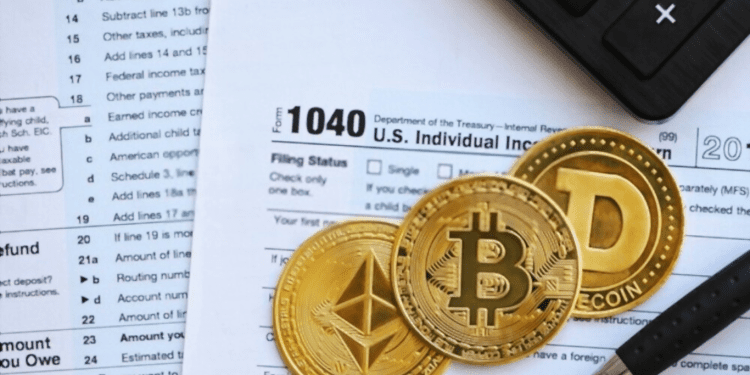The Internal Revenue Service (IRS) has received a court order approving an order of records for U.S. taxpayers who fail to report and pay taxes on virtual currency transactions. The IRS Commissioner said,
“The government’s ability to obtain information from third parties about those who do not report profits from digital assets remains an important tool for spotting tax fraudsters.”
SFOX is a cryptocurrency trader and trading platform with more than 175,000 registered users. The users have traded over $12 billion in cryptocurrencies since 2015. An IRS investigation has identified at least 10 U.S. taxpayers who made crypto transactions on the SFOX platform. These taxpayers did not report the transactions to the IRS as the law requires. John Doe’s order does not identify an individual to whom the liability for the subpoena is being issued.
Taxpayers must report all gains and losses related to cryptocurrency transactions on their tax returns. According to the IRS, tax compliance has significant deficiencies, especially with cryptocurrencies. Most individuals are evading tax using cryptocurrencies.
“…experience has shown significant deficiencies in tax compliance concerning cryptocurrencies and other digital assets.”
The Internal Revenue Service risks being embroiled in a year-long campaign. This involves collecting income tax from cryptocurrency investors after the first U.S. presidential election. Harper v. Rettig challenges the IRS’s use of the so-called John Doe summons to obtain crypto exchange trading records.
The Board of Appeals said that taxpayers should seek information from the IRS under the U.S. Supreme Court’s 2021 Precedent CIC Services LLC v. IRS. Despite a legal injunction against taxpayers challenging tax assessments and collections, which said they had the right to sue the IRS over collection tactics.
When to Report Cryptocurrency Trades on Your Tax Return
If you buy cryptocurrency in USD and store it on the exchange where you purchased it or transfer it to your wallet, you will not have to pay taxes at the end of the year. If the only cryptocurrency-related activity this year was to purchase cryptocurrency in U.S. dollars, you are not required to report to the IRS. You can find full guidelines in the Form 1040 tax return.
Cryptocurrency Trading
The use of virtual currency as a means of exchange is taxable. This includes selling virtual currency for U.S. dollars and exchanging one virtual money for another. It involves buying Ethereum with Bitcoin and using virtual currency to pay for goods or services.
Daniel Johnson, Financial Advisor and Founder of his RE | Focus Financial Planning in Asheville, North Carolina, said,
“Be careful when trading large amounts. If you move in and out of different types of cryptocurrencies, you will be taxed each time you make that transaction.”
The IRS will scrutinize cryptocurrency transactions this year and crack down on tax evaders. If a person avoided declaring cryptocurrencies taxable in the past, it might be punishable this year.














